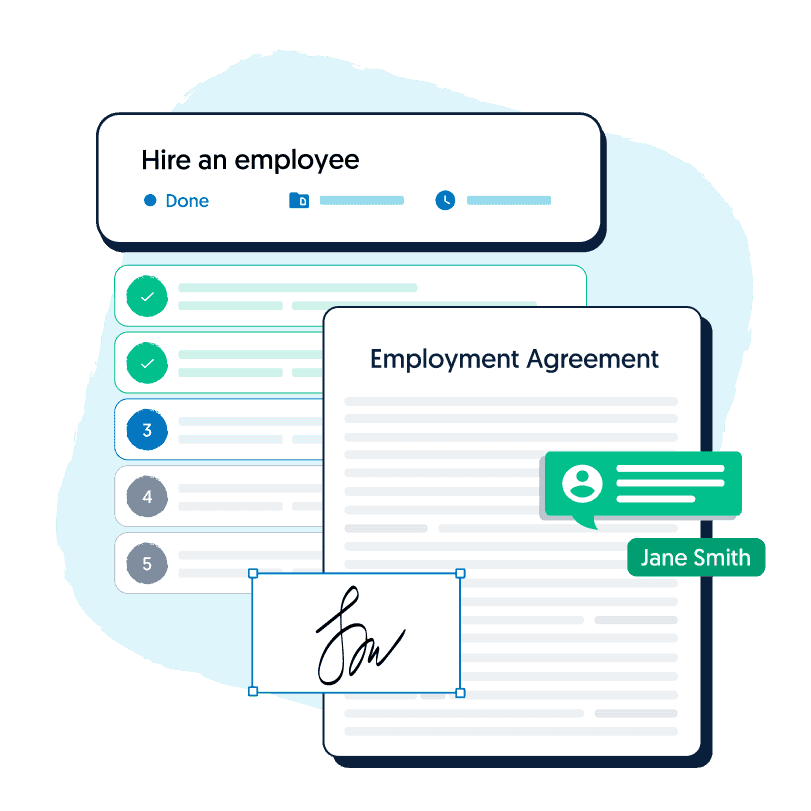Naga Vamaraju is a legal intern at Lawpath as a part of the Content Writing team. She is in her final year of a Bachelor of Arts (Psychology) and Bachelor of Law Degree. She has a particular interest in the law surrounding starting and operating a business.
A deed of company arrangement (DOCA) is one of the ways a company can be revived from insolvency. It is a binding agreement between the company and its creditors to allow the company to trade in order to pay back its debts. The DOCA will generally specify how the company’s affairs and assets are to be dealt with so that the business (or as much of it as possible) can be operational again. Therefore, entering into a DOCA will be the best chance creditors have at recovering their debt.
How does a DOCA come into effect?
When a company is placed under voluntary administration, the administrator will conduct an investigation and report their findings to the creditors in the second creditor meeting. At the second creditor’s meeting, the creditors will have to vote to either:
- Return the company to its directors
- Liquidate the company
- Agree to a Deed of Company Arrangement
The administrator will outline the company’s affairs and possible outcomes for the creditors each option in their report. At the meeting, the administrator will provide their opinion on each option and recommend the best one.
- They will provide an estimate of what creditors could expect if they liquidate the company, including any voidable transactions.
- The administrator will also explain to the creditors any DOCA proposals they have received, giving enough details so that the creditors understand the entire proposal. This includes an estimate of how much and when creditors would be paid, who the deed administrator is and their remuneration and the monitoring and reporting arrangements.
- They also provide any other relevant information that will help the creditors in making their decision.
Once the creditors have all this information, they will then cast their vote in order to pass a resolution. A resolution passes only when:
- Half the creditors voting have voted for a resolution AND
- The creditors whose debt makes up half of the total debt support that resolution.
Administering the DOCA
If the creditors vote to execute a Deed of Company Arrangement, then they must pass the resolution specifying the terms of the DOCA. These terms do not have to be the terms proposed in the creditor’s meetings. They will, however, bind all creditors to those terms including unsecured creditors who voted against a DOCA.
Usually, the voluntary administrator will be the deed administrator unless the creditors choose to appoint someone else. The deed administrator will then prepare the instrument containing all the terms agreed to in the resolution.
The company must sign the instrument within 15 business days of the second creditor’s meeting unless the Court allows an extension. The deed administrator must also execute the instrument as soon as practicable. Failure to do so may result in the company going into liquidation with the administrator becoming the liquidator. Once the administrator has executed the instrument, it then comes the Deed of Company Arrangement.
A DOCA will specify
- Who the administrator is and what their role and powers are
- The property that is to be used to pay the creditors
- The duration and nature of a moratorium period. I.e. how long the debts may be suspended
- To what extent the company will be released from the debt
- The conditions under which the deed will come into effect and continue to remain in effect
- Circumstances under which the deed terminates
- The priority of payments (this may be specific to the DOCA or in line with priority payments paid during liquidation)
- The cut-off date for creditors to make thier claims. This is usually no later than the day administration began and means any debts claimed after this date won’t be considered.
Under the terms of the DOCA, any documents, publications, contracts the company enters into has to contain the term ‘subject to Deed of Company Arrangement’. Once the company pays out its final debt:
- It will be released from its debts
- The deed administrator will no longer monitor the company
- It will continue to trade as a solvent corporation
A business might consider employing an advisory board member to help the transition and ensure they have good business practices in place.

Are you looking to hire an employee?
Use our "Hire an employee" workflow to complete and check off all your legal requirements
Payments under a DOCA
Creditors will usually be paid through dividends only if they can prove their claim is legitimate. The deed administrator can reject a creditor’s claim if they don’t have strong supporting documents like an invoice. If you are unsure about whether you have a claim, it is best to speak with an insolvency lawyer.
The priority order of payments will also affect a creditor’s debt. If the DOCA orders payments according to priority payments in the Corporations Act 2001 then, the administrator will be paid out first, then secured creditors, employees, and unsecured creditors. It is important to note that a DOCA will not affect a secured creditor from enforcing their security unless the DOCA limits it. If the DOCA sets out its own order for payments, then it is important to know how this affects you before you vote.
Don’t know where to start? Contact a LawPath consultant on 1800 529 728 to learn more about customising legal documents and obtaining a fixed-fee quote from Australia’s largest legal marketplace.

Get a fixed-fee quote from Australia's largest lawyer marketplace.






